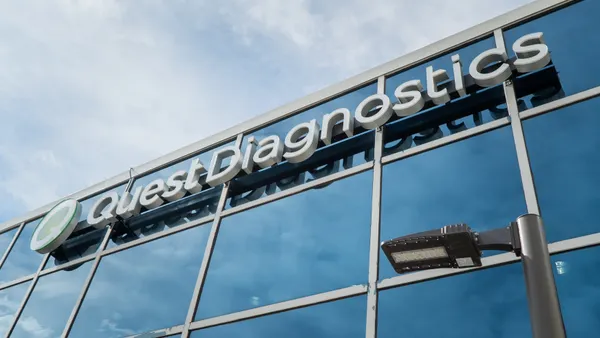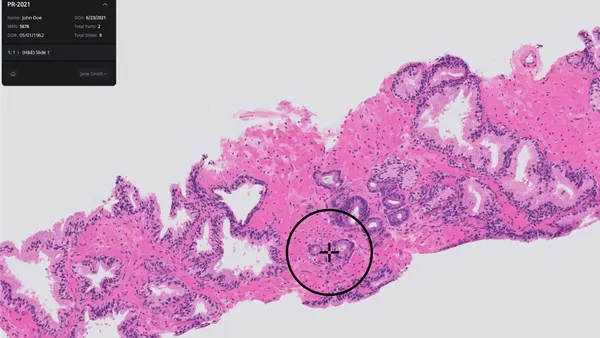Dive Brief:
-
DeepMind, a sister company of Google, uses artificial intelligence to predict whether a patient has acute kidney injury (AKI) 48 hours before the condition is currently diagnosed.
-
Working with the Department of Veterans Affairs, DeepMind trained its AI using de-identified patient data to determine when patients are likely to develop AKI within the next 48 hours.
-
If validated in a prospective, real-world study, the technology could enable physicians to intervene earlier, increasing the likelihood that the patient’s organs will be treatable.
Dive Insight:
Around one-fifth of patients in U.S. hospitals suffer from AKI. The condition is hard to spot early, meaning that many patients have deteriorated to the point where treatment options for it are limited.
Writing in Nature, DeepMind showed how AI may enable physicians to diagnose the condition sooner. By applying AI to data for more than 700,000 adults treated in 172 hospitals and 1,062 outpatient clinics, DeepMind trained its technology to detect signs a patient is likely to develop AKI. The dataset featured information such as laboratory test results and the medicines prescribed to the patient.
When applied to information on patients separated from the main dataset, the AI calculated the probability an individual would develop AKI over the next 48 hours. Among patients who went on to require dialysis, the predictions were accurate 90% of the time.
The AI was less accurate among patients with less severe forms of AKI, resulting in the accuracy for the entire dataset falling to 56%. The AI also frequently generated false positives. For every accurate prediction, the technology inaccurately forecast two patients were likely to develop AKI over the next 48 hours. Those shortcomings could limit the value of the system.
DeepMind is also yet to show AI works in the real world. Earlier healthcare AI research has shown the accuracy of predictions decreases when the technology is used prospectively in patients in a wide range of settings, rather than applied retrospectively to data from a single health system.
Even so, DeepMind says the system has potential, particularly if paired to technology enabling physicians to act quickly on its predictions. DeepMind shared details of its system for disseminating information, Streams, alongside news of the AI publication. Streams, which is in use at a U.K. hospital, uses the existing national AKI algorithm to alert physicians to the deterioration of patients.
The Streams team is set to join Google. Transferring the DeepMind health researchers to the larger organization is intended to support the scale up of their technologies.












